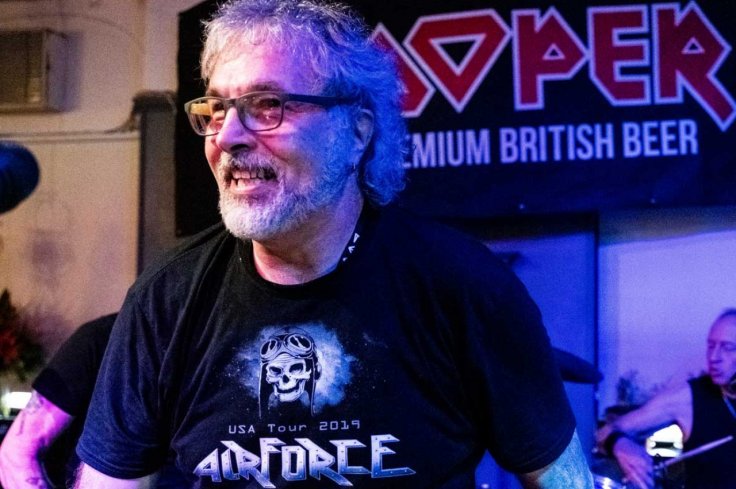How Did Paul Mario Day Die? Iron Maiden Legend Dies Aged 69 as Tributes Pour in for Heavy Metal Band’s Original Lead Singer
Tributes are pouring in for a legendary figure in heavy metal after his death at the age of 69. Paul Mario Day, the original lead singer of Iron Maiden, has died, the band confirmed. The news was shared online by the band More, which he joined after his early days with Iron Maiden during their formation in the mid-1970s.
Iron Maiden was a major force in the 1970s music scene known as the New Wave of British Heavy Metal (NWOBHM) and has several hits to its credit. They shared the stage with other bands from the movement at various festivals, including a recurring annual event held at Donington in Leicestershire.
Death of a Legend
X
Announcing Day’s death, More wrote, “We are deeply saddened to learn of the passing of the great MORE vocalist Paul Mario Day. Paul was a huge part of the [New Wave of British Heavy Metal] from his time in an early version of Iron Maiden and of course his fantastic performance on the “Warhead” album.”
“He was a well loved figure in British rock music and played many memorable shows not least the legendary 1981 Monsters of Rock show at Castle Donington with AC/DC, Whitesnake/David Coverdale as well as tours with Iron Maiden Def Leppard and many other legendary artists.
“Mike Freeland remembers him fondly as a ‘bloody great vocalist!’
“It’s an honour for us to continue to play his music and we will always think of him every time we hit the opening notes to ‘Warhead’. We send our deepest condolences to Paul’s family and friends and also the many fans around the world who love his music.
“Play his music loud and sing along! Thank you. Rock in peace Paul.”
An Eventful Career

X
Bassist Steve Harris brought Day into Iron Maiden in late 1975. The band played their debut live show on May 1, 1976, in Poplar, London, and later secured a regular gig at a pub in nearby Stratford.
Day stayed with Iron Maiden for about 10 months but left after being criticized for not having enough stage presence and energy.
His successor, Dennis Wilcock, also had a brief stint before being replaced by Paul Di’Anno. Di’Anno was eventually replaced due to issues with drugs and alcohol and was succeeded by Bruce Dickinson, who went on to become the band’s longtime frontman.
In 2019, Day said of his firing: “Steve was saying, ‘You’ve got to get better. You’ve got to be more in the audience’s face. You’ve got to be commanding. You’ve got to be a hero.’ And I agreed with him, but I didn’t actually know how to make that happen.
“I got a warning for maybe three months: ‘Get it together. Get it together.’ And I wanted to, I just didn’t know how to do it. So the funny thing is, the worst experience was the best lesson because when I got that notice and I felt so gutted, it changed me.
“Iron Maiden at that time were nothing, honestly … What Steve was doing was trying to make the band big. He knew what he wanted. What he wanted is what he got. He got one of the biggest bands on the planet. As much as it hurt, as much as it upset me, I learnt a big lesson that day. I really did. I used that emotion, I guess, in my singing.”
In 1980, Paul Mario Day founded the heavy metal band More and stayed with them until 1982. The group performed at the renowned Monsters of Rock festival at Donington in 1981.

